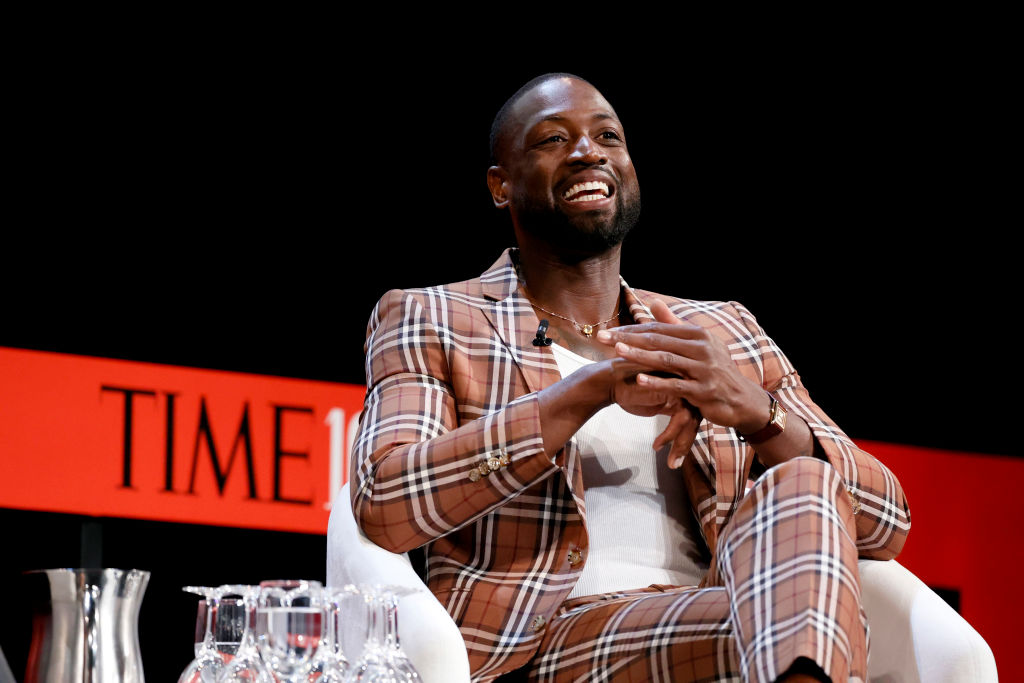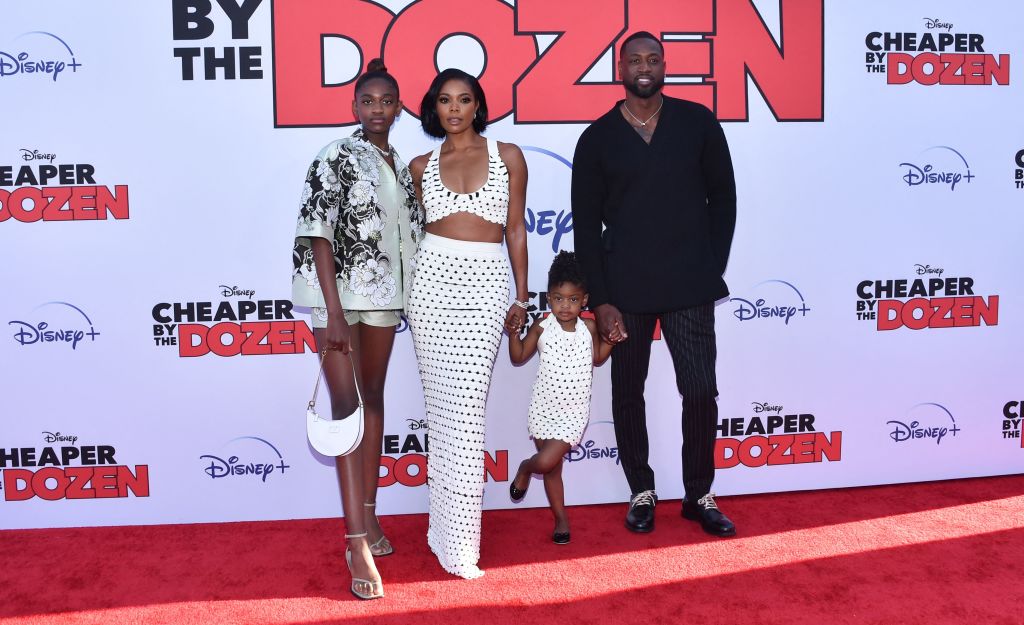Dwayne Wade seems to model for other parents how to support their children in navigating life and making their own decisions. Most prominently is his love and public support for his daughter Zaya Wade.
When Zaya came out as transgender in 2020, her transition caused a frenzy on social media. But the former basketball player and wife, Gabrielle Union, have been firm in their support for young Zaya.
As reported by Hello Beautiful, Dwayne Wade spoke about supporting his daughter and concerns for her safety at the Time 100 Summit in New York City. He also shared that he was bothered that he won’t always be by her side to protect her.
“As blessed as it is for my daughter to have parents who can support her, I’m still afraid every moment she leaves the house,” he said. “And not just because of gun violence, but because of the way people perceive her in this world.” Dwayne went on to call those states which are enforcing trans sports bans “a joke.”

Source: Jemal Countess / Getty
Hello Beautiful also noted that “since Zaya’s coming out, the former NBA star has been at the forefront of a few transgender conversations. He hopes to continue the conversation and shift the negative narrative to a positive one.”
If only more youth and young adults had passionate supporters like Dwayne Wade and Gabrielle Union in their lives. A recent survey by The Trevor Project found that having supportive and affirming spaces reduced suicide attempts.
Published last month during Mental Health Awareness Month, the 2022 National Survey on LGBTQ Youth Mental Health, found that more than half of transgender and nonbinary youth considered suicide in the past year. Nearly 1 in 5 transgender and nonbinary youth attempted suicide during the same period.
You deserve to be protected
art by @ItsHippyPotter
If you’re in crisis, we’re here 24/7 to support you at: 866.488.7386 or text/chat https://t.co/hxtScqt870
#lgbtq pic.twitter.com/b0xY6mK8oG
— The Trevor Project (@TrevorProject) June 11, 2022
Speaking with NewsOne, senior research scientist Dr. Myeshia Price shared the importance of providing LGBTQ youth with the support and resources needed to thrive.
“We found that as youth reported their community to be more accepting, the overall rates of attempting suicide went down and down by a lot,” Price said. “Every time we collect data, we see the true value of support, particularly from family, friends, people who are close to you, people who spend most of their time. We also see what our firming environments in schools can do.”
Price, who uses she/they pronouns, said there was also clear evidence of the importance of having affirming school environments as well. Recent legislative attacks on LGBTQ youth not only threaten the supportive environment but can negatively impact individual mental health.
“That’s something that I think reflects a lot of the hardships that youth are facing and have faced in the past year, related to the COVID-19 pandemic, and some of this really intense uptake in anti-LGBTQ legislation that specifically targeting transgender and non-binary youth,” Price explained.
As explained in the report, “LGBTQ youth are not inherently prone to suicide risk because of their sexual orientation or gender identity but rather placed at higher risk because of how they are mistreated and stigmatized in society.” Those wanting to learn how to be supportive of transgender or nonbinary youth should consider checking out The Trevor Project’s guide on the subject.
The organization surveyed almost 34,000 LGBTQ youth, with 45 percent of those surveyed identifying as youth of color. Price said the survey was one of the most diverse ever undertaken.
“It allows us to be able to break this data down, not only by sexual orientation and gender identity but also by race,” Price said. “That allows us to give a more nuanced understanding of how some of the mental health findings are experienced differently across some of these different groups of folks.”
Another interesting tidbit from the report is that at least 60 percent of the youth surveyed wanted mental health treatment in the past year but were not able to get it. Price said this research is helpful in being able to identify what supports are needed for LGBTQ youth.
“We know that if we’re able to get in there and have better environments, more supportive spaces for these youth, then we’re able to sort of ameliorate or decrease some of these mental health findings that we’re seeing,” Price explained. “Everyone has a part and they can provide a supportive place and be that supportive person. So we’re hoping that people can understand that there’s an issue that we can all do our part to address.
SEE ALSO:
Don Cheadle ‘Protect Trans Kids’ Picture Goes Viral During Day Two Of Week Of Visibility And Action
window.addEventListener(‘interaction’, function () {
setTimeout(function () {
var s = document.createElement(‘script’), el = document.getElementsByTagName(‘script’)[ 0 ];
s.async = true;
s.src = ‘https://platform.twitter.com/widgets.js’;
el.parentNode.insertBefore(s, el);
}, 1000)
});



